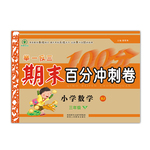
- What do you want ______when you grow up?
-I want to be a basketball player.
A.to be B.do C.being D.doing
 举一反三期末百分冲刺卷系列答案
举一反三期末百分冲刺卷系列答案科目:初中英语 来源: 题型:
His mother doesn’t mind soap operas.(对画线提问)
________ does his mother ______ of soap operas?
查看答案和解析>>
科目:初中英语 来源: 题型:
My cousin wants to be a_________.He is going to a_______ school.
A.cooker;cook B.cook;cooker C.cook;cooking D.cooks;cooking
查看答案和解析>>
科目:初中英语 来源: 题型:
-Do you think it is necessary to make a better plan before we go on a trip?
-Sure.A pleasant trip______ better planning.
A.have to do with B.has nothing to do with C.has to do with D.has to be
查看答案和解析>>
科目:初中英语 来源: 题型:
-Where are you going for your summer holiday,Kate?
-I'm not sure_________.I will ask my parents for some advice.
A.although B.ever C.already D.yet
查看答案和解析>>
科目:初中英语 来源: 题型:
一、学习引导
“used to...”表示“过去常常做某事,暗指现在已经不存在的动作或状态”,它后面要跟动次原形。但是在应用中还是有很多同学会出错。
一是它的否定形式和疑问句形式。
否定形式为:didn't use to或usedn't to;
疑问形式为:Did...use to...?或Used...to...?例如:
(1)He used to go swimming on Sundays,_____ ______(反义疑问句)
(2)He used not to play basketball.=He_____to play basketball.(否定句)
(3)Did you use to have long hair?=______you to have long hair?(一般疑问句)
二是它容易与下面两个结构混淆。
(4)be/get used to doing sth.“习惯于做某事”(to为介词)。
例如:He gets/is used to_____.他习惯于早起。
(5)be used to...“...被用来做...”
例如:These trees are used to_____.这些树被用来做一艘船。
查看答案和解析>>
科目:初中英语 来源: 题型:
学习评价
Ⅰ.根据首字母提示填空。
1. The drivers'carelessness may c_____the traffic accidents.
2. Though I studied hard,I still f_____in the examination.
3. If you want to pass the exam.you have to pay much
a______to what the teacher says in class.
4. Helen is terrified of snakes,She never walks into the garden a______.
5. He is a h______teacher.He makes his classes interesting.
6. In his free time.He likes reading books about E_____history.
7. The reporter i________the pop singer and wrote a report about her.
8. His father's death has i_____him a lot.
9. His sister used to be quiet,she s____talked with others.
10. My parents are always taking P_____in everything good I do.
查看答案和解析>>
科目:初中英语 来源: 题型:
( )10. I have a friend who talks but does than me.
A. little; much B. less; more
C. less; much D. few; many
查看答案和解析>>
湖北省互联网违法和不良信息举报平台 | 网上有害信息举报专区 | 电信诈骗举报专区 | 涉历史虚无主义有害信息举报专区 | 涉企侵权举报专区
违法和不良信息举报电话:027-86699610 举报邮箱:58377363@163.com